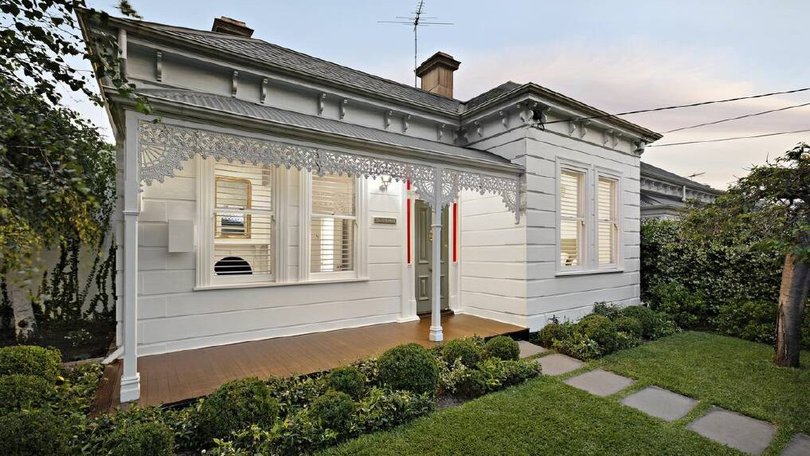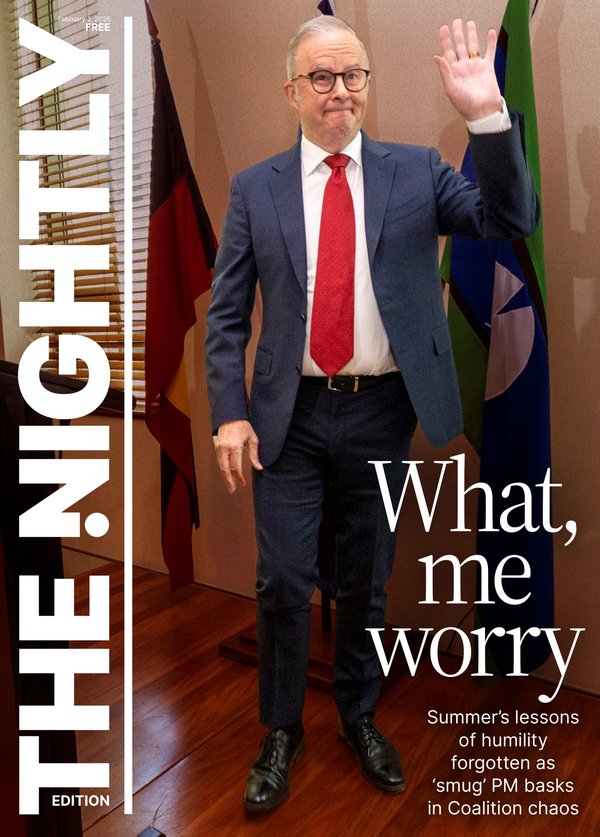Victoria's auction reserve price reform faces backlash
New reserve price rule in Victoria sparks debate

Victoria's real estate industry is pushing back against a new reform proposed by the Allan Labor Government that would force real estate agents to publish vendors reserve price at least seven days before an auction, a move agents warn could backfire on sellers and distort the property market.
The reform, announced as part of an Australian-first crackdown on underquoting, aims to stop buyers wasting their weekends at auctions where the final price sails far beyond the advertised guide.
But industry leaders argue the mandatory disclosure could strip vendors of flexibility and create new tensions in an already volatile market.
Sign up to The Nightly's newsletters.
Get the first look at the digital newspaper, curated daily stories and breaking headlines delivered to your inbox.
By continuing you agree to our Terms and Privacy Policy.Under the proposal, a property cannot be taken to auction unless the vendor-approved reserve has been publicly listed one week prior, effectively locking sellers into a fixed minimum price regardless of changing market conditions or buyer interest.

Vendors "lose their options," industry says
Real Estate Institute of Victoria CEO Toby Balazs says the proposed rule removes a vendor's ability to make informed decisions about their biggest financial asset.
"By requiring a vendor to disclose the reserve price seven days prior to auction or a set-date sale, it removes their options and the ability to respond to market demand, something they should absolutely have the right to do when selling what's often the biggest transaction of their life," Balazs says.
He argues the rule, as drafted, places the burden on vendors rather than agents, despite agents being the ones regulated under underquoting laws.
"This is an expectation on what the vendor must do, not what the agent must do," he says.
"We support better price transparency, but it has to be workable for every part of the market, buyer, seller and agent."
Could early disclosure create higher, not lower, price guides?
Balazs also warns the change could spark an unintended shift toward overquoting, as agents and vendors try to protect themselves from the risk of setting a reserve too low too early.
"Could it result in over-quoting? Good question. We don't know yet," he says. "But we can absolutely see how forcing early disclosure, regardless of market momentum, could push price guides higher out of caution."
While the government argues the reform will stop price-guide manipulation, Balazs says existing laws already provide a workable framework, if strengthened correctly.
"If a vendor's reserve sits within the advertised 10 per cent price band, that should satisfy market expectations," he says.
"The problem is where a reserve is dramatically above that band. That's where frustration occurs, not when homes sell within the guide or even above it due to genuine competition."
Auctions "test the market" and that can change right up to auction day
Balazs stresses that auctions exist precisely to let the market decide what a home is worth, often driven by buyer competition that can't be predicted a week in advance.
"When a property goes well beyond the guide, it's usually because two or more serious buyers are genuinely fighting it out," he says. "That's a pure auction process. It tests demand - and that demand often can't be known until the day."
He says the industry is just weeks away from presenting a comprehensive "blueprint" for reform, developed by a strategic working group with government representation. One option being explored is requiring vendors to confirm their reserve three days before auction, as long as it falls within the advertised price band.
"We want to bring forward balanced recommendations that cover all methods of sale ... auctions, private treaty, EOIs, not just one," Balazs says.
"Our aim is better transparency without stripping vendors of the flexibility they need."
Economists warn new rules could create "legal underquoting"
Independent experts agree the reform could introduce fresh problems rather than solve old ones.
Dr Peyman Khezr, Senior Lecturer in Economics at RMIT University, says forcing vendors to set reserves early may lead to distorted price expectations and new frustrations for buyers.
"Publishing reserve prices may reduce some misleading advertising, but it will not stop homes selling 10, 20 or 30 per cent above the advertised figure," Khezr says.
"Buyers may still feel underquoted, only now it will be a legal form of underquoting created by the new rules."
He says the requirement effectively forces sellers to make pricing decisions before knowing how many bidders will attend, how competition will build, or whether fresh comparable sales will shift the market.
"In a volatile housing market, early commitment can be costly," he says.
"A reserve is a floor, not a forecast. It's the lowest price an owner will accept, not an estimate of the final sale price. Auctions routinely end well above reserve, so the reform won't resolve the frustration buyers feel."
Khezr argues Victoria already has some of the strongest underquoting legislation in the country and would benefit more from refining minimum-maximum price bands rather than imposing reserve-price disclosure.
"A better solution would strengthen the accuracy of minimum and maximum price guides," he says. "In most cases, final prices fall within that range."
What happens next?
The Victorian Government has not confirmed when the reform will take effect next year.
Balazs says the REIV will continue pushing for a more balanced model that lifts transparency without compromising sellers' rights.
"We welcome working with the government. We want to deliver recommendations that are practical and fair for everyone in the transaction," he says.
For now, buyers and sellers are bracing for a significant shake-up of Victoria's auction market, one that could reshape how homes are priced, marketed and sold across the state.

Originally published as Victoria's auction reserve price reform faces backlash
